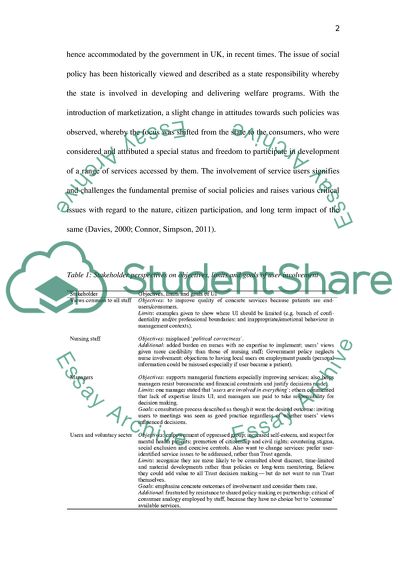Cite this document
(The Impact of User Involvement Strategies in Welfare Essay Example | Topics and Well Written Essays - 2000 words, n.d.)
The Impact of User Involvement Strategies in Welfare Essay Example | Topics and Well Written Essays - 2000 words. https://studentshare.org/sociology/1763607-key-issues-in-social-policy
The Impact of User Involvement Strategies in Welfare Essay Example | Topics and Well Written Essays - 2000 words. https://studentshare.org/sociology/1763607-key-issues-in-social-policy
(The Impact of User Involvement Strategies in Welfare Essay Example | Topics and Well Written Essays - 2000 Words)
The Impact of User Involvement Strategies in Welfare Essay Example | Topics and Well Written Essays - 2000 Words. https://studentshare.org/sociology/1763607-key-issues-in-social-policy.
The Impact of User Involvement Strategies in Welfare Essay Example | Topics and Well Written Essays - 2000 Words. https://studentshare.org/sociology/1763607-key-issues-in-social-policy.
“The Impact of User Involvement Strategies in Welfare Essay Example | Topics and Well Written Essays - 2000 Words”. https://studentshare.org/sociology/1763607-key-issues-in-social-policy.


